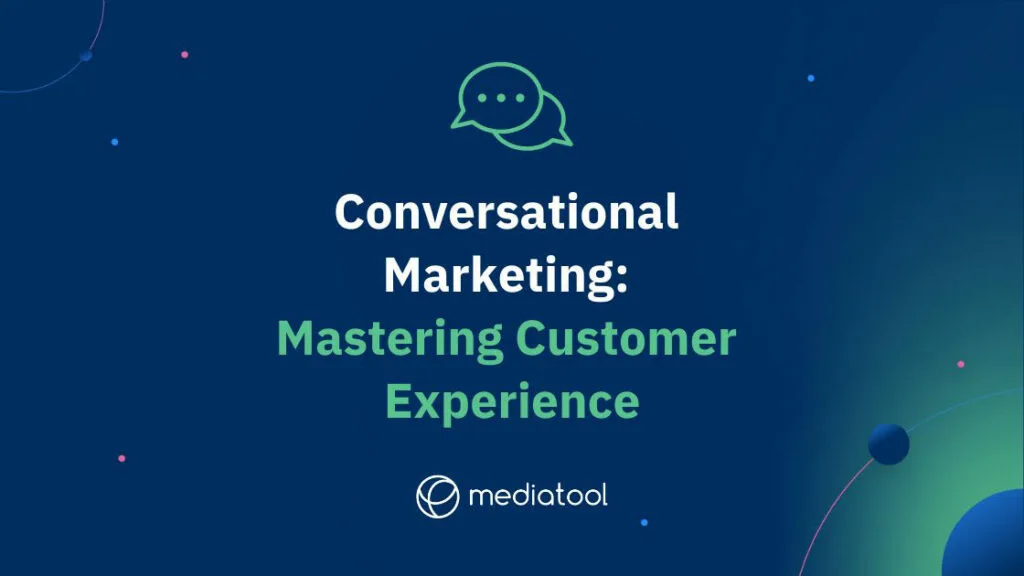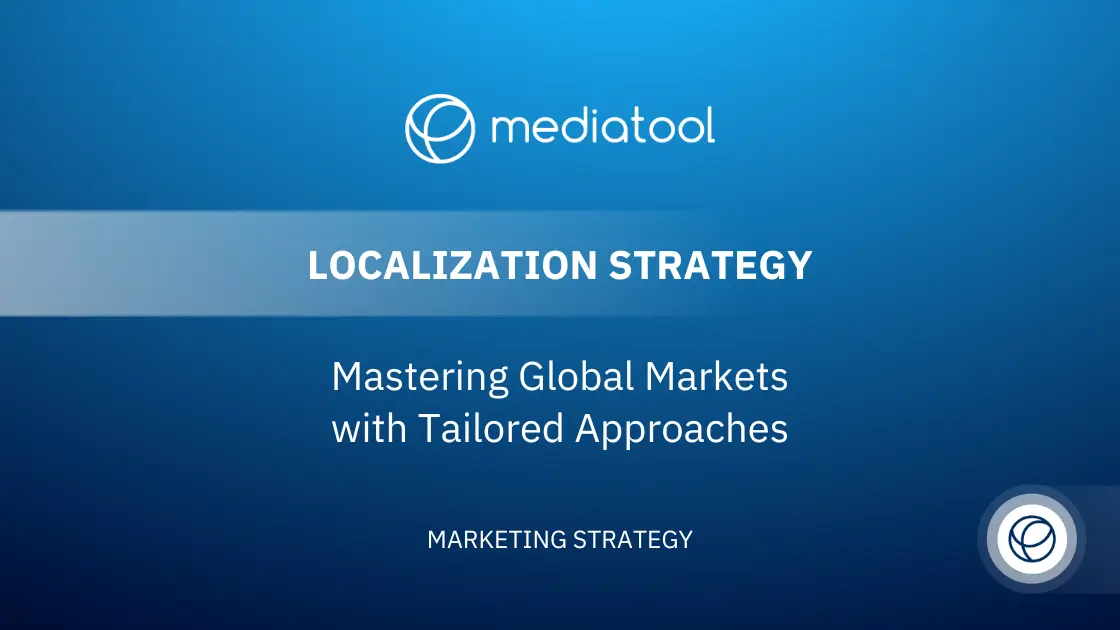We live in an era where everyone is glued to their smartphones, and communication is at the tip of our fingers. In a world where emojis and text messages are the norms, it’s no surprise that conversational marketing is becoming increasingly popular.
In this article we’ll explore the ins and outs of conversational marketing, its benefits, and how you can implement it in your business.
What is Conversational Marketing?
Conversational marketing is a strategy that places the customer at the heart of every communication channel. It’s all about engaging customers through meaningful conversations across multiple channels like messaging apps, social media, and even direct face-to-face interactions.
Unlike traditional marketing approaches, this method emphasizes real-time, personalized interactions that resemble a friendly chat more than a sales pitch.
Here’s the catch: while businesses have always communicated with their customers, conversational marketing refines this process. It involves actively listening to customers, understanding their journey, and responding with tailored solutions.
This approach transforms sales teams into facilitators of customer satisfaction, offering a more human, empathetic touch to the sales process.
In our digital age, where impersonal marketing messages are the norm, people yearn for genuine human interaction that makes them feel valued.
That’s the power of conversational marketing.
By initiating and maintaining authentic dialogues, businesses can foster customer loyalty, have sales agents enhance the overall customer experience, and drive meaningful engagement.
This strategy isn’t just a buzzword; it’s a crucial part of an effective inbound marketing strategy. By utilizing conversational marketing platforms and tools, like live chat or Facebook Messenger, sales reps can create more meaningful interactions, gather valuable insights, and potentially turn website visitors into qualified leads.
Conversational marketing is not just about talking to your customers. It’s about creating a personalized experience that resonates with them, building strong customer relationships, and strategically guiding them through the sales funnel, thus shaping a successful conversational marketing strategy.
Understanding the Essence of Conversational Marketing
Conversational marketing is all about engaging customers through one-on-one, real-time conversations. Unlike more traditional methods of marketing, which tends to be more one-sided and impersonal, conversational marketing encourages genuine dialogue between businesses and their customers.
This approach fosters stronger relationships, builds trust, and creates a more personalized experience for the customer.
At its core, conversational marketing focuses on three key principles:
- being real,
- relevant,
- and responsive
This means being authentic and genuine in your interactions, providing timely and relevant information, and promptly responding to customer inquiries and concerns. 71% of customers expect companies to communicate with a conversational marketing bot in real time.
The Power of Personalized Communication in Business

Consumers are bombarded with information and advertisements daily in today’s fast-paced digital world. Businesses need to create meaningful connections with their customers to cut through the noise. This is where personalized communication comes in.
By tailoring your message to individual customers and addressing their specific needs, you can create a more memorable and meaningful experience. Personalized communication has been proven to increase customer engagement, satisfaction, and sales. More than half of consumers, specifically 52%, are inclined to repeatedly buy from a company that provides customer support through live chat.
Conversational marketing facilitates personalized communication by allowing businesses to engage with their customers in real time. a Conversational marketing platform enables businesses to provide tailored, contextually relevant information to their customers on demand through social media, chatbots, or other messaging platforms.
Strategies for Implementing Conversational Marketing
For effective implementation of conversational marketing channels within your business, consider these key strategies:
Utilize Multiple Channels
Embrace various communication channels such as social media, messaging apps like Facebook Messenger, and chatbots. This diversification allows you to engage with customers on their preferred platforms.
Considering estimations that by the conclusion of 2023, messaging apps will be a regular part of life for more than 2.8 billion people globally, the inclusion of these platforms in your conversational marketing strategy becomes even more crucial.
Ensure Seamless Experience Across Channels
Aim for a consistent customer journey where conversations can transition smoothly across different platforms without losing context. This approach helps in maintaining continuity in customer interactions.
Equip Your Team
Train your own sales rep and customer service teams to handle meaningful conversations. Provide them with conversational marketing tools and software to facilitate authentic engagement with customers.
Initiate Conversations Proactively
Don’t just wait for customers to come to you. Be proactive in starting conversations and attracting customers by posing questions or sharing valuable insights and tips.
Listen and Adapt
Leverage the valuable insights gained from customer interactions to enhance your products and services, thereby improving the overall customer experience.
Implementing these strategies in your conversational marketing approach can lead to a more successful sales process, better customer relationships, and increased customer satisfaction.
By effectively engaging customers through these channels, your sales teams can more efficiently guide potential customers through the sales funnel, leading to higher conversion rates and a loyal customer base.
This customer-centric method aligns with inbound marketing strategies and can significantly contribute to generating more leads and speeding up sales cycles.
Leveraging Chatbots and AI for Effective Conversations

Chatbots and artificial intelligence (AI) are at the forefront of transforming business-customer interactions. These innovative technologies automate routine tasks, efficiently handle frequently asked questions, and engage in more nuanced conversations.
Effectively integrated, chatbots and AI can significantly boost your conversational marketing strategy, offering immediate, tailored responses to customer queries. This not only enhances the customer experience but also frees up your sales team’s time for more complex and valuable customer interactions.
Additionally, in a significant move towards cost-efficiency, companies embracing conversational marketing fully are projected to reduce their call center expenses by as much as 33% by 2023. This highlights the economic benefits of integrating advanced conversational tools into customer service strategies.
To maximize the potential of chatbots and AI, consider these strategies:
- Contextual Understanding: Develop chatbots that grasp the nuances of the conversation, providing relevant and useful responses that align with the customer journey.
- Focus on User Experience: Ensure that your chatbot interface is user-friendly, contributing positively to customer interactions and satisfaction.
- Continuous Improvement: Regularly assess the performance of your chatbots through customer feedback and analytics to refine and enhance the conversational experience.
Incorporating these elements into your conversational marketing tools and software can lead to more meaningful conversations, better engagement with potential and existing customers, and a more efficient sales process.
This approach not only aligns with inbound marketing strategies but also aids in creating deeper customer relationships, potentially leading to more qualified leads and a faster journey through the sales funnel.
Through these conversational channels, businesses can offer personalized experiences, answer customer questions more effectively, and continuously optimize their strategies to attract more web visitors and generate leads, ultimately boosting their customer base and sales cycles.
Integrating Conversational Marketing into Your Overall Business Strategy
Conversational marketing is not just about creating engaging dialogues with customers; it’s a strategic asset that can be woven into the fabric of your entire business operation. Here’s how you can integrate conversational marketing into your business strategy to optimize every aspect of customer interaction and drive growth.
Bridging Sales and Marketing
Conversational marketing is a powerful tool for aligning your sales and marketing efforts. By leveraging insights from customer interactions on platforms like Facebook Messenger or live chat, your sales team and reps can better understand the customer journey, tailoring their approach to meet specific needs. This leads to more effective lead generation and a faster sales cycle, as reps are equipped with the information needed to convert website visitors into qualified leads.
Enhancing Customer Service
In customer service, conversational marketing tools such as chatbots and messaging apps can significantly improve efficiency and customer satisfaction. These tools offer direct access to support and enable sales teams to deliver personalized recommendations, addressing customer questions and concerns in real time. This not only fosters stronger customer relationships but also boosts customer loyalty.
Refining Product Development
Conversational marketing provides valuable insights into customer preferences and pain points. By analyzing conversations and feedback, your product development team can continuously optimize offerings, ensuring that your products or services resonate well with your customer base.
Optimizing Inbound Marketing
Integrating conversational marketing into your inbound marketing strategy helps attract potential customers through targeted messages and engaging content. By initiating meaningful conversations and creating personalized experiences, you can effectively guide prospects through the sales funnel, converting them into loyal customers.
Measuring the Impact of Conversational Marketing on Customer Experience

To truly understand the impact of your conversational marketing strategy, it’s crucial to measure specific metrics that reflect its effectiveness:
Customer Satisfaction
Utilize tools like customer surveys and social media feedback to evaluate how satisfied customers are with their interactions through conversational channels like chatbots, messaging apps, and social media platforms. This feedback is vital in continuously optimizing your approach to enhance the customer experience.
Engagement Metrics
Keep a close eye on how customers interact with your conversational marketing tools. Track the volume and quality of conversations, response times, and the efficiency of platforms like Facebook Messenger or live chat in answering customer questions. This data helps in refining your conversational marketing strategy to better engage both existing and potential customers.
Conversion Rates
Monitor how effectively your conversational marketing efforts lead to desired customer actions. Whether it’s making a purchase, signing up for a service, or booking an appointment, understanding these conversion rates is key to assessing the success of your sales process and the ability of your sales teams and reps to generate leads.
Retention Rates
Measure the impact of conversational marketing on customer loyalty by analyzing repeat purchases and the overall lifetime value of customers. This insight can guide your sales and marketing teams in creating strategies that foster long-term customer relationships.
ROI Assessment
Evaluate the return on investment of your conversational marketing initiatives. Compare the costs involved in implementing these strategies, including the use of conversational marketing software and tools, against the revenue generated from improved customer interactions and increased sales.
By closely monitoring these metrics, you can gain valuable insights into how conversational marketing is influencing your customer journey and sales cycles.
This not only helps in justifying the investment in conversational marketing platforms and strategies but also in shaping a successful inbound marketing strategy that resonates with your customer base.
Conversational Marketing Examples: Real-World Applications
To illustrate the power and versatility of conversational marketing, let’s explore some real-world examples that showcase how different businesses successfully implement this strategy to enhance customer experience and drive sales.
- E-commerce Retailer Utilizing Chatbots: An online store integrates a chatbot into its website and messaging apps to assist customers. The chatbot offers product recommendations, answers frequently asked questions, and helps with order tracking. This not only improves the shopping experience but also reduces the workload on customer service teams.
- Financial Services with AI-Powered Assistants: A bank employs AI-driven chatbots on its website and social media platforms to offer instant customer service. The bots handle queries about account balances, transaction histories, and branch locations. They also provide personalized financial advice, making banking more accessible and efficient for customers.
- Travel Industry Personalized Messaging: A travel agency uses messaging apps to send personalized travel deals and updates to customers. By analyzing previous bookings and preferences, the agency tailors its offers, leading to higher engagement rates and more bookings.
- Healthcare Provider Offering Virtual Consultations: A healthcare provider leverages conversational AI to offer virtual consultations through their website. Patients can discuss symptoms in real time with an AI system, which directs them to the appropriate care based on their inputs. This system enhances patient access to healthcare and streamlines the appointment booking process.
- Automotive Company for Customer Feedback: An automotive company uses a conversational platform to gather customer feedback post-purchase. The platform engages customers in a conversation about their experience, gathers valuable insights for quality improvement, and strengthens customer relationships.
- Real Estate Agent Connecting with Potential Buyers: A real estate agent uses conversational tools on their website and social media to engage with potential buyers. Through these conversations, the agent understands the buyers’ needs, provides targeted property recommendations, and schedules viewings, accelerating the sales process.
- Restaurant Chain for Order Placement and Reservations: A popular restaurant chain implements a conversational system on their website and via messaging apps for easy order placement and reservations. Customers can interact with an AI assistant to view the menu, place orders, and book tables, enhancing the customer service experience.
These examples demonstrate the diverse applications and benefits of conversational marketing across various industries. Reflecting this growing trend, the chatbot market is anticipated to expand to an estimated value of approximately 1.25 billion U.S. dollars by 2025. By implementing conversational marketing tools and strategies, businesses can provide a more personalized experience, answer customer questions effectively, and build strong relationships, leading to increased customer satisfaction and loyalty.
Future Trends: The Evolving Landscape of Conversational Marketing
As technology advances and customer expectations continue to evolve, conversational marketing will also change. Some future trends to watch in conversation marketing include:
Voice assistants
As voice-activated devices become more widespread, businesses will need to adapt their conversational digital marketing strategies to engage customers through voice interactions.
Augmented reality (AR) and virtual reality (VR)
These technologies can potentially create immersive, interactive experiences that take conversational marketing to the next level.
ChatGPT Revolution
OpenAI’s ChatGPT technology is poised to revolutionize conversational marketing. With its advanced natural language processing capabilities, ChatGPT can understand and generate human-like text based on the context of a conversation.
This breakthrough will allow businesses to create more intelligent, personalized, and empathetic chatbots to better understand and engage with customers.
As a result, businesses can provide more effective support, guidance, and product recommendations, improving customer satisfaction and loyalty.
Seamless integration across platforms
Conversational marketing tools will be seamlessly integrated across various platforms, including social media, messaging apps, and websites. This integration will enable businesses to create a consistent customer experience across all touchpoints.
Enhanced personalization
Future conversational marketing technologies will be able to analyze vast amounts of data, including customer behavior, preferences, and sentiment, to deliver highly personalized interactions. This will allow businesses to tailor their messaging and offers to each customer, driving deeper engagement and conversions.
Proactive communication
As conversational marketing tools become more advanced, businesses can proactively reach out to customers with relevant information, offers, and support. This will help businesses anticipate customer needs and address potential issues before they escalate, resulting in a more satisfying customer experience.
Emotionally intelligent interactions
In the future, conversational marketing tools can recognize and respond to emotions in customer interactions. This emotional intelligence will enable businesses to create more empathetic and supportive experiences that resonate with customers on a deeper level.
As conversational marketing evolves, businesses that stay ahead of these trends and embrace cutting-edge technologies like ChatGPT will be better positioned to engage and delight their customers, ultimately driving growth and success.
The Takeaway: Embrace Conversational Marketing for Business Success
Conversational marketing is about engaging customers through authentic, real-time dialogue that helps build genuine connections and improve customer experiences. By embracing this approach, your business can stand out in a world full of impersonal, cookie-cutter marketing tactics.
So, what are the key takeaways to remember as you start implementing conversational marketing?
First, always strive to be real.
Customers appreciate businesses that come across as genuine and human rather than scripted and robotic. Don’t be afraid to show your brand’s personality and let your unique voice shine through. This will make your conversations more enjoyable and relatable, fostering stronger customer connections.
Next, be relevant by tailoring your communication to your customer’s individual needs, preferences, and context.
By personalizing your interactions, you can demonstrate that you understand and value your customers as individuals, not just as numbers in a database. This will help you address their needs more effectively and build trust and loyalty.
Also, be responsive to your customer’s questions, concerns, and feedback.
Conversational marketing thrives on timely, helpful responses that make your customers feel heard and supported. Whether through chatbots, messaging apps, or social media, aim to provide prompt, accurate, and empathetic assistance that resolves issues and keeps your customers satisfied.
Don’t shy away from leveraging chatbots and AI, to enhance your conversational marketing efforts.
These tools can help you scale your interactions, provide 24/7 availability, and even offer personalized recommendations based on customer data. Remember to balance automation and the human touch, ensuring that your customers feel valued and cared for.
And remember to always keep learning and evolving.
As with any marketing strategy, tracking your results, analyzing your performance, and adapting your approach based on what works best for your business and customers is essential. Stay open to new ideas, trends, and technologies that can help you elevate your conversational marketing game.
Looking for more ways to enhance your marketing and advertising campaigns? With Mediatool, you can plan, manage and report on all your campaigns from one platform. Take a tour of Mediatool today to see how your team can start making data-driven decisions.





